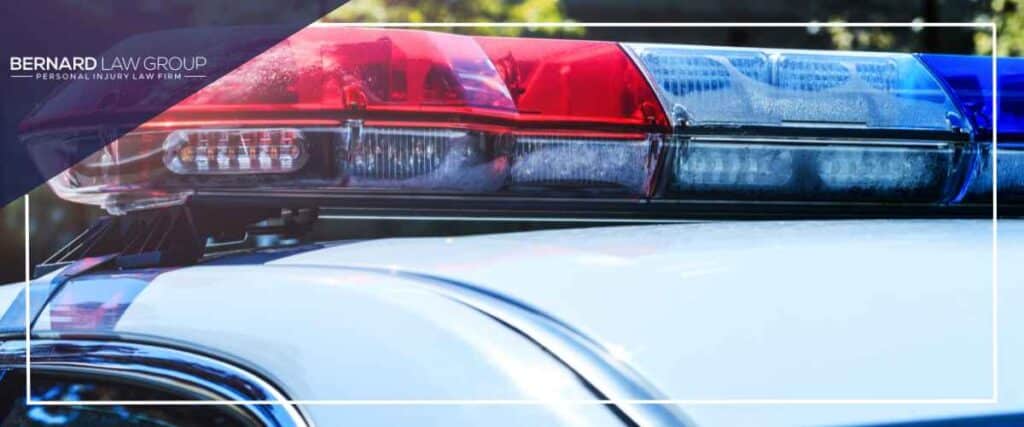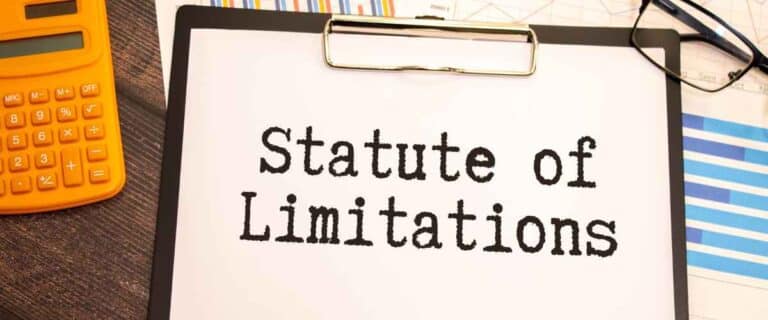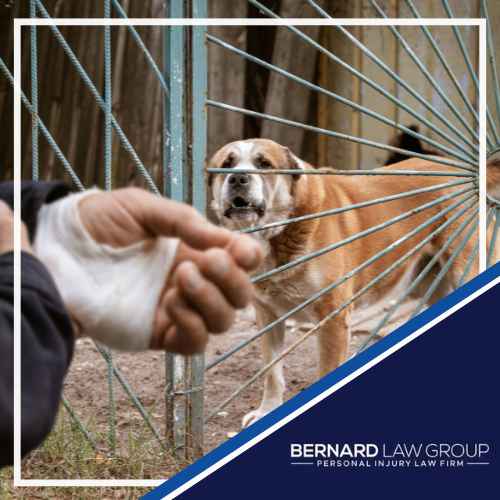When you find yourself in a car accident, one of the first questions you might ask is whether you need to involve the police, especially if the accident seems minor.
Understanding the legal implications and steps to take can be crucial for protecting your rights and ensuring you handle the situation correctly. Our Seattle car accident lawyer at Bernard Law Group is here to explain what you need to know.
Understanding the Law in Seattle
In Seattle, as in the rest of Washington State, specific laws dictate when you must report a car accident to the police. According to Washington state law (RCW 46.52.030), drivers must report an accident to the police if it results in:
- Injury or death of any person.
- Property damage exceeding $1,000.
While this provides a clear directive for serious accidents, it can be less obvious regarding minor incidents. Here, understanding what constitutes a “minor” accident is essential.
Even seemingly minor damages can sometimes surpass the $1,000 threshold once repair costs are fully assessed. Not only does reporting an accident protect you from potential criminal charges associated with failing to report the accident, but it also provides your injury attorney in Seattle with the evidence needed to pursue legal action.
Steps to Take After a Minor Car Accident
After a minor car accident, taking immediate steps to ensure safety and protect your legal rights, regardless of the accident’s severity, is crucial.
First, move to a safe location away from traffic to avoid further harm. This might involve pulling over to the side of the road or moving to a nearby parking lot.
Next, check for injuries among all involved parties and seek medical assistance if necessary. It’s important to seek a medical evaluation, even for injuries that do not seem life-threatening, since some injuries may not have visible symptoms.
It’s important to exchange information with others involved, including names, contact details, and insurance information. Ensure you also note the make and model of the vehicle, as well as the license plate numbers.
Documenting the scene by taking pictures of the accident site, vehicle damages, and injuries that you have that are visible can provide valuable evidence. Be thorough in your documentation, capturing different angles and including any road signs relevant to the crash or signals that might have contributed to the accident.
If there are witnesses, gather their contact information and statements to support your case. Witnesses can provide an unbiased account of the events leading up to the accident, which can be invaluable if there are disputes about what happened.
Ensure to provide notice of the accident to your insurance company to initiate the claims process and secure adequate coverage. Provide them with all the collected information and documentation to facilitate a smooth and efficient claims process.
Additionally, keep a personal record of all communications and documents regarding the accident for future reference.
When to Involve the Police
Even in minor accidents, there are scenarios where involving the police is advisable, including:
- Disputed Liability: If there’s any dispute about who is at fault, having a police report can be crucial in establishing the facts and protecting your interests.
- Uninsured Drivers: If the other driver appears to be uninsured or underinsured, a police report can help document the situation for your insurance company.
- Suspicious Behavior: If the other party seems suspicious, such as signs of impairment, providing false information, or attempting to flee the scene, involving the police is essential to ensure the situation is properly handled.
- Public Property Damage: If any public property, such as traffic signs, guardrails, or other infrastructure, is damaged, the police must be informed to facilitate the necessary repairs and document the incident.
Importance of Reporting, Even in Minor Accidents
Reporting a minor accident to the police can have several significant benefits:
- Legal Record: A police report creates an official record, which can be invaluable if disputes arise later. This legal documentation can serve as evidence in court if necessary, ensuring a formal account of the incident. It helps establish facts and support your version of events, which is crucial in a legal setting.
- Insurance Claims: Insurance companies often require a police report to process claims efficiently. Without this report, the claim process can be delayed or even denied. Providing a police report helps to streamline the claims process and ensures that all parties have access to the same information, reducing the risk of misunderstandings or discrepancies.
- Future Disputes: Having a police report can protect you against future disputes regarding the accident, providing a clear, unbiased account of what happened. This can be particularly important if the other party involved in the accident changes their story or you need to refer back to the incident for any reason. A police report offers a third-party perspective that can be crucial in resolving any disagreements that may arise or when pursuing a personal injury claim with the help of an injury attorney in Seattle.
Overall, reporting even minor accidents can save you considerable hassle and uncertainty in the long run.
Consequences of Not Reporting
Failing to report an accident as required by Seattle law can have several negative consequences:
- Legal Penalties: You could face fines or other legal penalties for not complying with state reporting requirements. Depending on the circumstances, this could include tickets or even more severe legal issues.
- Insurance Issues: Lack of a police report might complicate your insurance claim process, possibly leading to denied claims or reduced compensation. This can leave you financially responsible for damages that should have been covered.
- Liability Risks: Without an official report, you may find it challenging to prove your version of events if the other party contests the facts or files a claim against you. This can result in you being held liable for damages or injuries you did not cause, increasing your financial and legal risks.
Additional Considerations
- Documentation: Always document the accident scene as much as possible with photos, videos, and witness statements. This evidence can complement the police report.
- Medical Attention: Even if you do not feel your injuries are serious, seeking medical attention is advisable. Some injuries may not be apparent immediately, but having a medical record can support your claims.
- Follow-Up: Contact the police, your insurance company, and your injury attorney in Seattle to process all necessary information and address any follow-up questions or concerns.
Contact Our Seattle Car Accident Lawyer
If you are injured in a motor vehicle accident and unsure about whether to report the car accident or need guidance on handling your claim, our Seattle car accident lawyer at Bernard Law Group is here to help. Call us for a free consultation to discuss your case and explore your legal options.




